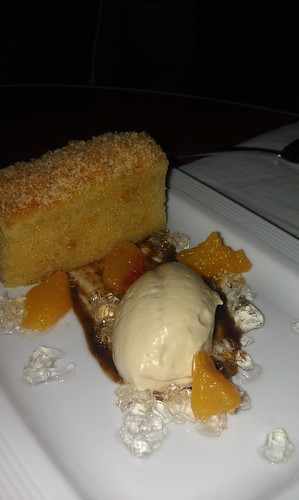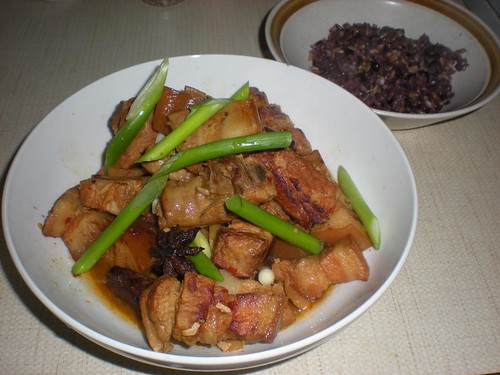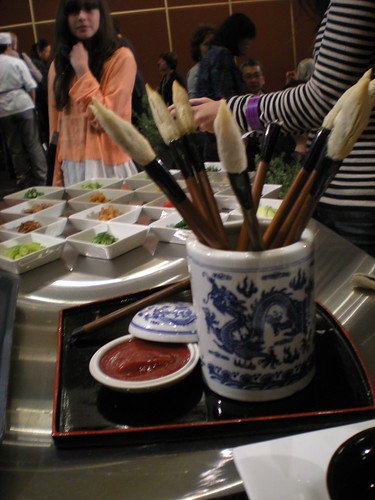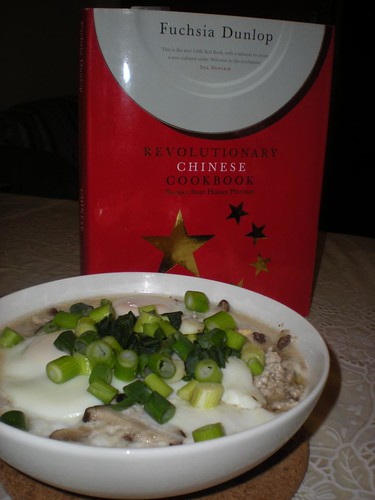
Sashimi at Izakaya Fujiyama, Surry Hills. The real highlight though was the much less photogenic braised pork belly with eggplant - soooo gooood. The chocolate cake with condensed milk icecream and quince was also a winner.

Cherry trifle at The Carrington, Surry Hills, which has re-furbed itself as a hipster Spanish tapas joint. The cocktails are awesome - I liked the Spanish Pimp and the Single Mother, and doesn't that sound like a movie title? - and there's a lot of fun food to try like empanadas, medianoche (Cuban midnight sandwich), chicken wings, calamari sliders, jamon croquettes and churros with chocolate.
Secondly, another recipe from Fuschia Dunlop. Apparently this was one of Mao Zedong's favourite dishes. For my own part, I found this dish lacking a certain something - I think the pork needed longer cooking time to get it really soft - but the flavour is quite delicious.

Chairman Mao's Red Braised Pork
500g pork belly (skin optional)
2 tbsp groundnut oil
2 tbsp white sugar
1 tbsp Shaoxing wine
20g fresh ginger, skin left on and sliced
1 star anise
2 dried red chillies (I subbed in some dried chilli flakes)
A small piece of cassia bark or cinnamon stick
Light soy sauce, salt and sugar
A few lengths spring onion greens
Plunge the pork belly into a pan of boiling water and simmer for 3-4 minutes until partially cooked. Remove and when cool enough to handle, cut into bite sized pieces.
Heat the sugar and oil in a wok or pan over a gentle flame until the sugar melts, then raise the heat and sit until the sugar turns a rich caramel brown. Add the pork and the wine.
Add enough water to just cover the pork, and add the ginger, star anise, chillies and cassia/cinnamon. Bring to the boil then turn down the heat and simmer - the book suggests simmering for 40-50 minutes but I had to take it longer and on next attempt will probably try for twice as long.
Towards the end of the cooking time, turn up the heat to reduce the sauce and season with soy, salt and sugar to taste. Add the spring onion greens just before serving.
Adapted from "Revolutionary Chinese Cookbook: recipes from Hunan province" by Fuschia Dunlop




